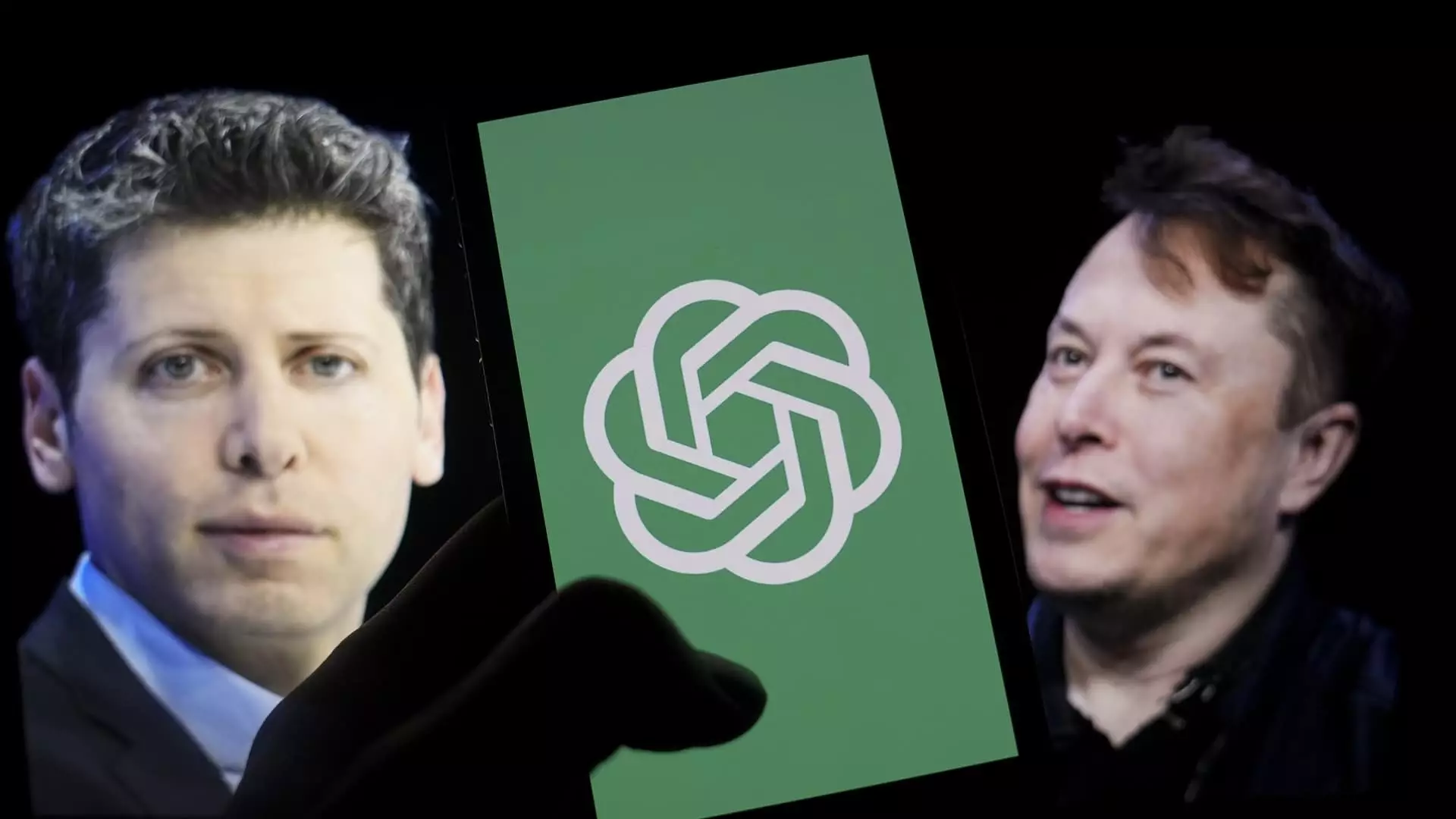In a dramatic turn of events, Elon Musk has intensified his legal battle against OpenAI by petitioning a federal court to intervene in its transformation into a fully for-profit entity. Musk, alongside his startup xAI and former OpenAI board member Shivon Zilis, filed for a preliminary injunction that claims OpenAI is not only stepping away from its original mission but is also allegedly engaging in anti-competitive practices. This legal confrontation encapsulates broader tensions within the rapidly evolving AI landscape, revealing intricacies regarding investor rights, market competition, and ethical business practices.
Musk’s ambitions regarding artificial intelligence are well-documented, dating back to his partnership with OpenAI when it first launched in 2015 as a non-profit aimed at promoting “friendly AI.” However, tensions flared dramatically after OpenAI’s shift to a capped-profit model in 2019, and more recently, its plan to transition into a fully for-profit public benefit corporation. The core of Musk’s discontent appears to stem from grievances over OpenAI’s operational practices that he perceives as harmful not only to his new venture xAI but also to the competitive integrity of the AI industry.
Musk’s legal team has resorted to the courts after withdrawing a previous lawsuit in state court, repositioning their argument under federal laws, notably those regarding racketeering and antitrust. Since the introduction of their complaints, the scope has been broadened to incorporate claims that OpenAI and its prominent backer, Microsoft, have colluded to limit funding opportunities for rival firms.
At the heart of Musk’s recent legal filings lie allegations that OpenAI is compelling investors to refrain from supporting competitors, a practice Musk’s attorneys describe as a “group boycott.” This assertion carries weight within the legal framework of antitrust laws, which are designed to encourage competition rather than stifle it. Musk’s team argues that OpenAI’s actions effectively hoard funding to bolster its own market dominance, diminishing the financial prospects for burgeoning companies like xAI that aim to innovate and compete.
An OpenAI spokesperson has dismissed these claims, referring to them as “baseless.” However, the public statement reflects the potential for reputational harm that legal challenges pose in the rapidly expanding AI sector. Given that OpenAI has evolved into one of the most celebrated startups with its widely popular ChatGPT, allegations of unethical behavior could have long-lasting repercussions for its standing in the industry.
Microsoft’s substantial financial involvement in OpenAI, nearly $14 billion, adds another layer of complexity to this legal mess. While Musk’s attorneys argue that the relationship between Microsoft and OpenAI warrants scrutiny due to potential conflicts of interest, it’s apparent that Microsoft seeks to profit from the burgeoning AI industry. However, the tech giant did recently offer a tentative concession by stepping back from its observer role on OpenAI’s board. In doing so, Microsoft might be attempting to quell accusations of undue influence while the Federal Trade Commission (FTC) probes the relationship patterns between major AI developers and cloud service providers.
The FTC’s ongoing market inquiry is crucial in examining whether deals among tech behemoths are fostering a monopolistic environment. With companies such as Google and Anthropic entering the fray, the stakes have never been higher, and the outcome of these investigations could redefine the competitive landscape of AI development.
Musk’s lawsuit isn’t merely a personal vendetta but rather a symptom of a broader rivalry within the AI sector. With the generative AI market projected to exceed $1 trillion in revenue within the next decade, players across the board are racing to seize market share. Musk has been vocal about what he perceives as a potentially dystopian future dictated by a few dominant players in AI technology, which informs his fervent resistance against OpenAI’s current trajectory.
As Musk’s xAI garners attention—with its chatbot Grok and ambitions for extensive investments—it’s clear that the competition isn’t simply about technology but also about who controls the future of AI. The escalating legal conflict reveals underlying ethical questions surrounding profit motives versus the original intent of AI research and development and raises pertinent inquiries into the responsibilities of leading companies in this transformative sector.
The unfolding saga between Elon Musk and OpenAI underscores the complexity and volatility of the AI landscape. As this legal battle develops, its outcomes may not only alter the fates of the involved startups but also reshape industry norms regarding competition and ethical investment. For investors, developers, and consumers alike, the potential consequences of these proceedings resonate far beyond the courtroom, highlighting the intricate interplay of ambition, technology, and ethics in the rapidly progressive world of artificial intelligence.


Leave a Reply